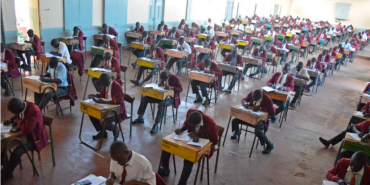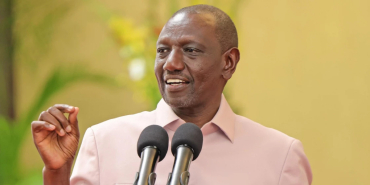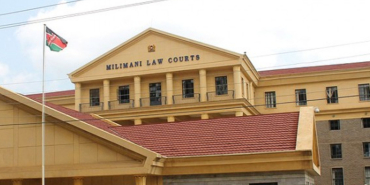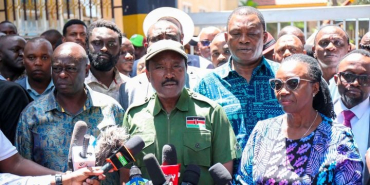Children of British Soldiers in Nanyuki Seek Recognition and Support

The British Army Training Unit Kenya (BATUK), which has been stationed in Nanyuki for over sixty years, is facing renewed scrutiny amid allegations that British soldiers have fathered children with local women and left many without support.
These claims are gaining legal momentum as more than ten children seek recognition and financial assistance from their absent fathers. The cases vary in nature, involving both consensual relationships and accusations of rape. These children are confronted with the daunting task of locating their fathers, many of whom have returned to the UK.
Kelvin Kubai, a lawyer representing the affected children, has noted a rise in such cases in the region. He aims to hold responsible parties accountable and ensure they support their children. Among his clients is Louise Gitonga, 26, whose mother, Margaret Wandia, became pregnant after a brief relationship with a British soldier.
Wandia met Gitonga’s father while working in a bar near the military base. After the soldier left, he provided no support for his daughter. Another client, Jenerica Namoru, 29, is raising her five-year-old child following a short-lived relationship with a British soldier. Although the soldier initially acknowledged the pregnancy and agreed to have his name on the birth certificate, he has since failed to provide any financial support and has cut off contact.
The situation is further exacerbated by social stigma surrounding the children, many of whom are perceived as "white" in a predominantly black society. This perceived difference often results in discrimination, higher educational fees, and challenges in securing employment. In response to these issues, Kubai is collaborating with a British law firm to facilitate reconnections between the children and their fathers in the UK.
British law stipulates that children born to British citizens are entitled to citizenship and parental care if they are under 18. For those exceeding this age, the pursuit of paternal recognition and support remains a considerable challenge. A spokesperson from the British High Commission says that the UK government and the British military mission in Kenya are actively cooperating with local child support authorities concerning paternity claims.
However, mothers and civil society groups in Kenya contest this assertion, arguing that the level of support provided has been inadequate or nonexistent. They are pressing for formal recognition and financial assistance for their children left behind by British soldiers.














Comments
To be "Rescued/helped"…
Permalink
To be "Rescued/helped" mindset backfired on these young women..sleeping around..
The case is Private/personal/individual choices not National security threats..
Gd luck!.
Add new comment